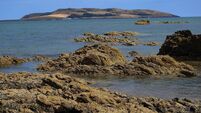Watch: Six stranded dolphins rescued from Kerry beach
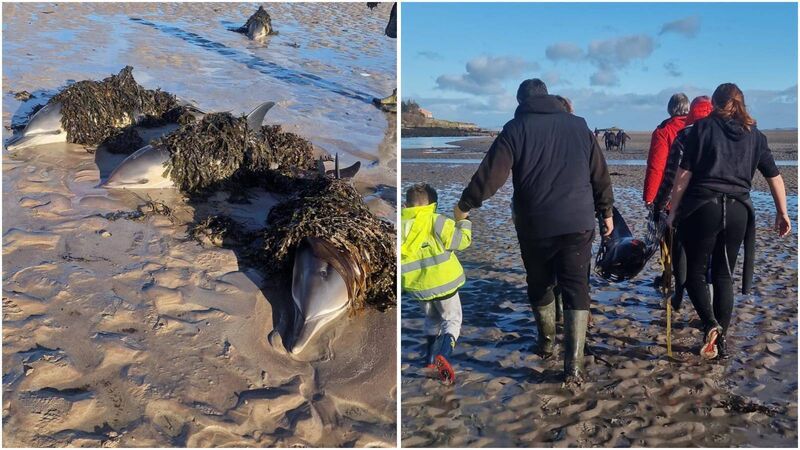
The rescue operation for six common dolphins stranded at Cloghane in County Kerry. They were all refloated and guided out to deeper waters. Pictures: Tabitha Overy / IWDG
Six stranded dolphins, a pod of more than 20 getting distressed and into danger too, and a team of around 20 volunteers on land and on sea. Thankfully it all added up to a positive outcome in Cloghane, County Kerry yesterday.
Common Dolphins are normally 'pelagic' which means they live and feed in deep water but have been coming in close to the coast more frequently.
Gemma O'Connor, Irish Whale and Dolphin Group Live Stranding Network Coordinator, explained: "When these dolphins are happily feeding they can follow fish into a 'dolphin trap' area which might be a large flat area with lots of channels and sand banks and then as the tide is dropping they can't echolocate their way out."
The IWDG has a hotline, a protocol, and teams of experts and volunteers in place for events such as this.
"If people ring the hotline I ask them for GPS info and if possible a video and pictures so I can determine the species and what condition the animal is in, I can then call our network of volunteers and task the nearest ones to go out," said Gemma.
The first four dolphins, believed to be adolescents, became stranded in shallow water and then a further two adults were spotted — then it's believed their signals and calls of distress alerted the rest of the pod to come closer into the shallows.
Well done to everyone in today’s rescue! Such a great community, local coordination and volunteer response in Cloghane. Six common dolphins initially live stranded then the rest of the pod came into shallows. Once all animals were refloated they were guided out to deeper waters. pic.twitter.com/6NKgR3QH0l
— Irish Whale and Dolphin Group (@IWDGnews) January 14, 2024
"The Cloghane community is always looking out for dolphins which is great. These ones were seen swimming and feeding and then people saw the stranded ones quite quickly so that was helpful."
IWDG volunteer Tabitha Overy was at Cloghane and initially worked to keep seagulls away from the stranded dolphins: "That's really important as the seagulls can peck their eyes and do quite a bit of damage."
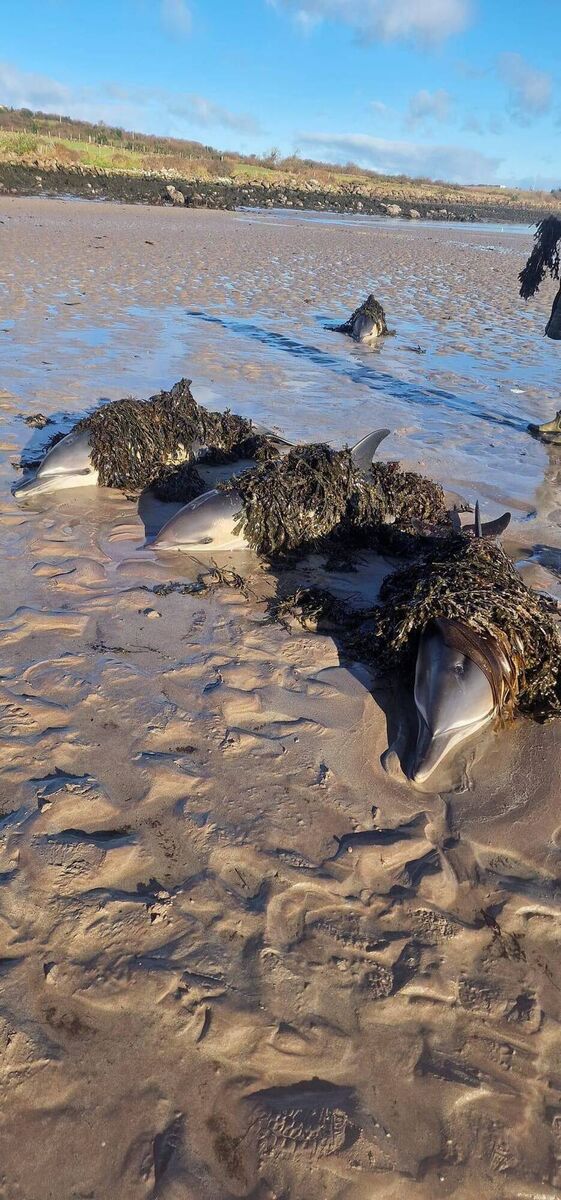
The rescuers made sure to keep the dolphins covered with wet seaweed which helps keep them cool and wet as "even on an overcast day they can blister from UV exposure" explained Gemma.
But it's also vital to ensure that water poured over stranded dolphins doesn't go into their blowhole as this can suffocate them. And well-meaning people are asked not to drag stranded dolphins by the tail or pectoral fin either. This can distress them further and can cause serious injuries so they don't survive even when back in the water.
"We carried the smaller ones back to the water and tried to discourage them from coming back in again and then around 20 people got involved and helped get the rest back into the water. I stayed in the water for a while as they reorientated themselves," said Tabitha.
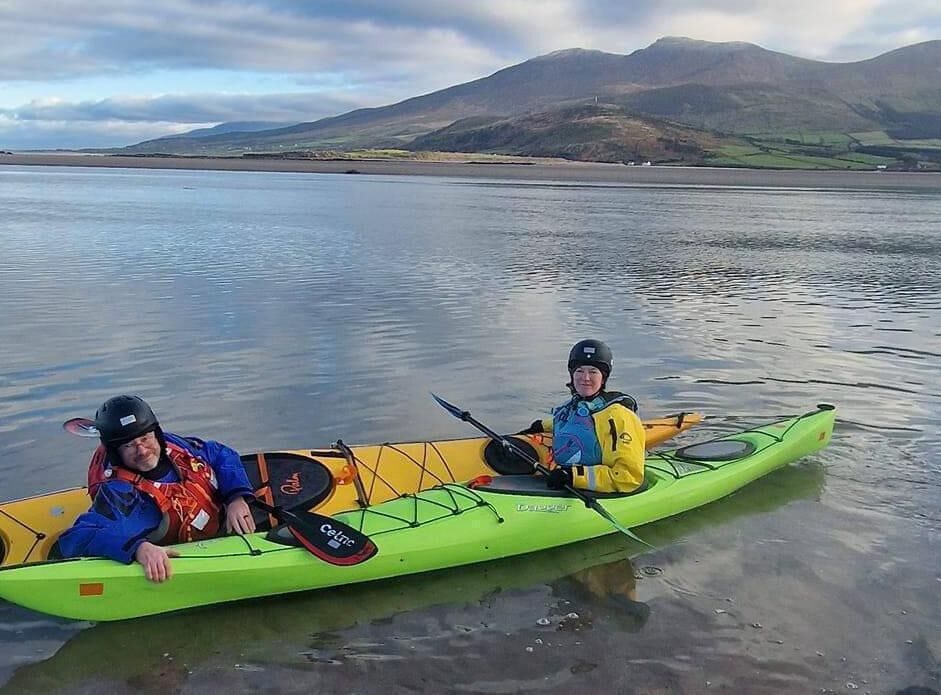
The rescuers worked hard to refloat the dolphins — not easy when they can weigh 120-140kg each. Then sea kayaker volunteers were called and they got behind the pod and directed them out over the sandbar.
It's not known why common dolphins are increasingly visiting coastal areas but it is causing problems for some. "They are not coastal foragers like the bottlenose dolphin and they don't know the terrain. We do have more warm-water species moving north and even pilchard and anchovies are becoming more abundant but there is definitely a shift in distribution," noted Gemma.
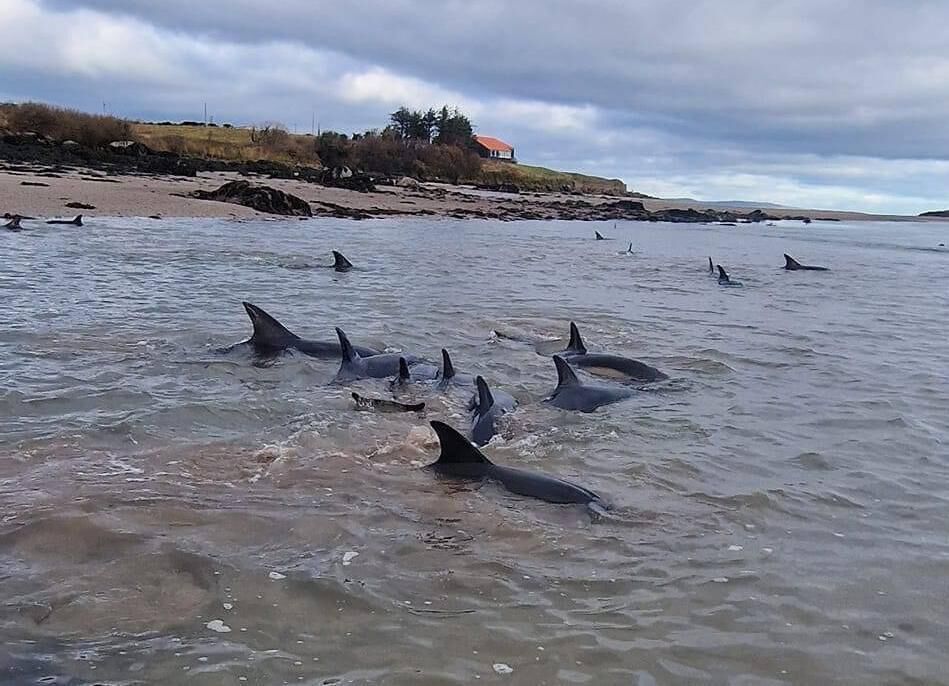
The IWDG praised the Cloghane community and said they have volunteers all over the country and run live stranding courses for interested people. Current volunteers include school teachers and shop workers, fishermen and farmers, and third-level students. There are also volunteers who can be called to go out if a dead dolphin is reported — these people collect data such as length, gender, condition, signs of trauma etc.
The hotline is 097 28118
See iwdg.ie to sign up for courses and for more information on dolphins



